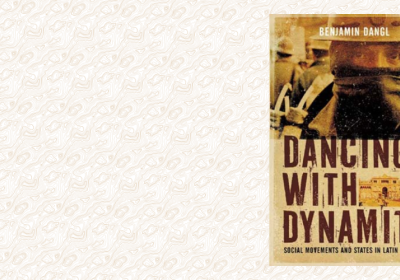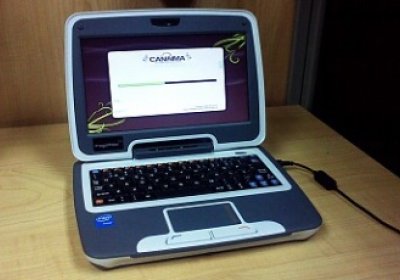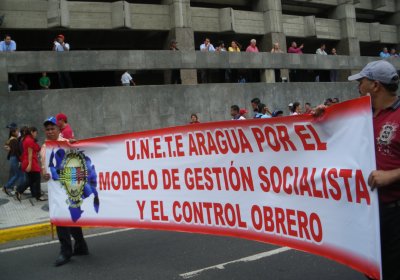One of the most vital features of the Bolivarian revolution underway in Venezuela is the development by workers and their organisations of different forms of workers’ control in their workplaces and communities.
The increasing participation and control by workers is taking place at the same time as hundreds of companies have been nationalised.
Venezuela
On November 22, Venezuelan President Hugo Chavez and Vice-President Elias Jaua headed a meeting including the regional vice presidents of the United Socialist Party of Venezuela (PSUV — the mass party led by Chavez) as well as government vice-presidents. The two groups make up the Council of Vice-Presidents.
It should come as no surprise that Latin America, a region converted into a laboratory for ongoing experiments in social change, has increasingly become the topic of discussion and debate among the broader left.
The contrast is striking. As Australia’s state and federal governments continue their bloody-minded corporatisation and privatisation of our few remaining public assets, the revolutionary government of Venezuela is bringing important industries and sectors into public ownership and control.
The Venezuelan government has begun distributing the first of 350,000 portable Canaima laptop computers to be provided to public elementary school children by the end of the year, Venezuelanalysis.com said on November 17.
Education minister Jennifer Gil said: “The Canaima Plan is a milestone and a technological innovation. It allows us to keep deepening our integral and massive education system that does not involve just students, but the entire family environment, parents, representatives and teachers.”
More than 5000 workers from across Venezuela marched to the Venezuelan National Assembly in Caracas on November 9. The rally was organised by the National Workers’ Union (UNT).
Venezuelan President Hugo Chavez announced on October 31 the expropriation of steel company Siderurgica del Turbio (Sidetur). The company is a major producer of steel used in the building of homes, bridges and other infrastructure and public works.
Chavez also announced government interventions in six large housing developments being built and eight others that are ready for residents to move in. Government oversight has been increased in a further 19 privately-run housing projects.
On November 2, the Venezuelan government expropriated the Caracas shopping centre Sambil La Candelaria, Venezuelanalysis.com said on November 4.
The government decree said the shopping complex and large parking area would be “transformed into a meeting space for Venezuelans within the framework of a sustainable economy and permitting the development of the exchange of goods and services as well as the development of cultural expression”.
A Bolivarian Alliance for the Americas (ALBA) meeting was planned in La Paz, Bolivia on November 10, for ALBA’s Latin American nation members to advocate for a common position on the defence of the rights of Mother Earth.
ALBA is an anti-imperialist bloc of eight nations led by Cuba, Venezuela and Bolivia.
Bolivian environment minister Maria Esther Udaeta said the meeting would discuss the position of ALBA nations at the next United Nations climate summit at Cancun in December.
Venezuelan President Hugo Chavez announced the nationalisation on October 25 of US-based glassmaker Owens-Illinois affiliates, Venezuelanalysis.com said on October 27. The article said this places 60% of Venezuela’s glass bottle industry under government ownership.
It is not difficult to see that the events in Ecuador on September 30 amounted to an attempted right-wing coup d’etat.
Mass mobilisations in the streets of the capital, Quito, and other cities — together with action by sections of the armed forces loyal to the government — stopped the coup before the day was out.
But those few hours highlighted, again, the deep dangers facing those fighting for progressive change in Latin America and the Caribbean.
Venezuela’s representative in the United Nations Food and Agriculture Organisation (FAO), Alfredo Missair, spoke on October 18 about Venezuela’s achievements in the field. He said that 14 million citizens (about half of the population) now have access to food at fair prices.
On the TV show Desperto Venezuela, broadcast by VTV, Missair stressed the country is on track to meet the UN Millennium Development Goals of halving the proportion of the population that is undernourished.
- Previous page
- Page 57
- Next page










